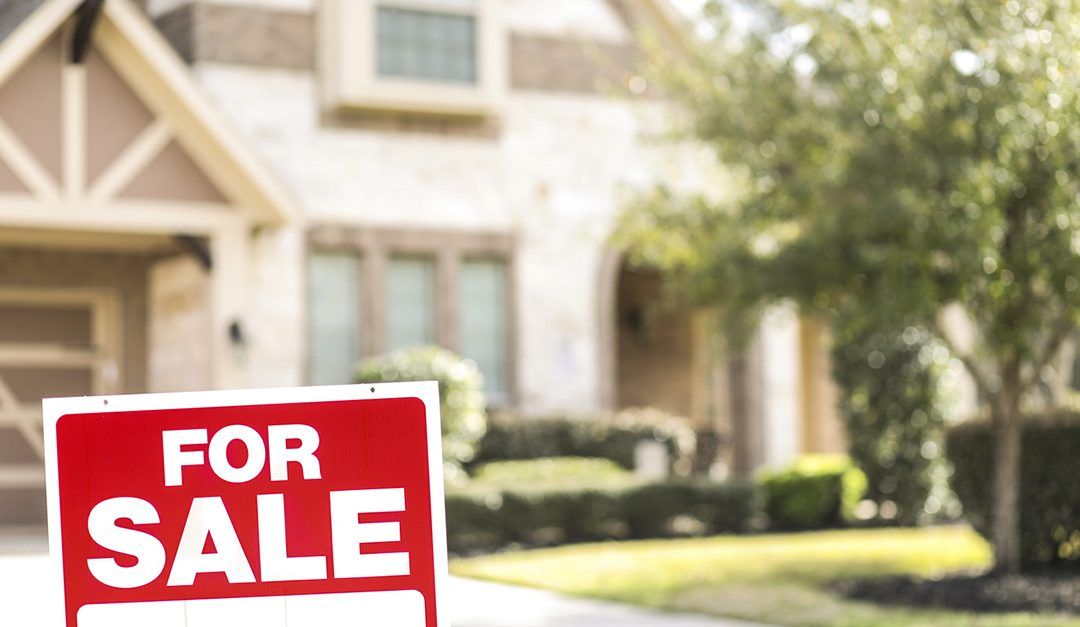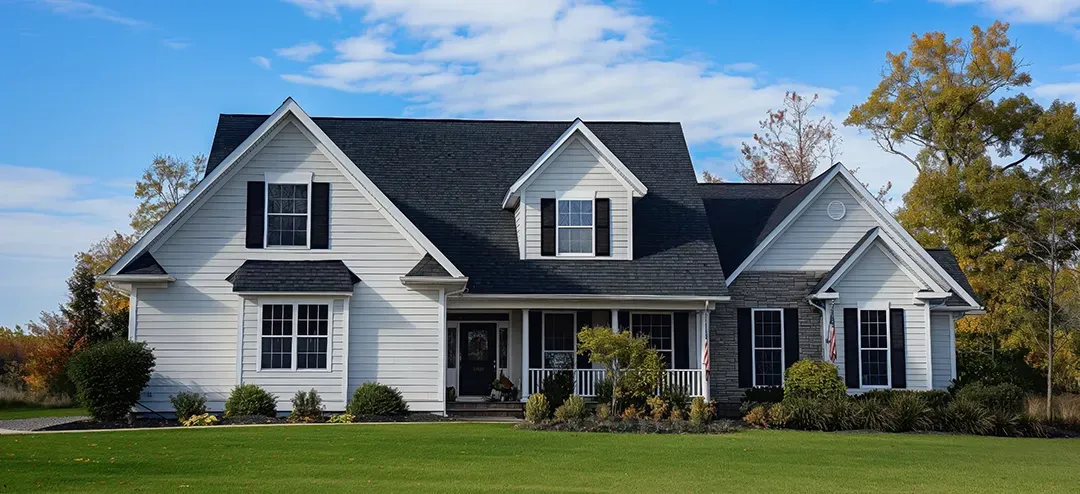Top Things to Check When Touring a Home in Las Vegas
When you're touring a home in Las Vegas, excitement can easily cloud judgment. With the bright lights and desert charm all around, it’s easy to fall in love too quickly. However, beneath the surface of any stunning home could be issues that cost you time, money, and peace of mind. That's why knowing what to look for when touring a home in Las Vegas is not just smart—it's essential.
Las Vegas has unique environmental factors, including extreme heat, monsoon-like rain, and dry desert air, all of which impact how a home holds up. A dream home today shouldn't become a financial nightmare tomorrow. This guide will walk you through every inch of a property and ensure you're prepared to make an informed decision, not just an emotional one.

Curb Appeal and First Impressions
They say first impressions last—and homes are no different. When you pull up to a property in Las Vegas, take in the front yard. Is the landscaping water-efficient with desert-friendly plants? Is the paint sun-faded? Is the driveway cracked or well-maintained? These signs can tell you how much care the current owners have invested in upkeep.
Roofing and Gutter Status
With over 290 sunny days a year, roofs in Las Vegas take a beating. Check the roof’s condition—look for curling shingles, sagging areas, or missing tiles. Flat roofs are also common in older homes; be wary of pooling water or cracked sealants. Don’t forget the gutters—though rain is rare, when it comes, it pours.
Foundation and Exterior Walls
Las Vegas soil shifts with heat and dryness, which can lead to foundational cracks. Walk around the house and examine the exterior walls for large cracks, uneven settlement, or exposed rebar. While hairline cracks are often cosmetic, wider ones can spell trouble.
Windows and Insulation Efficiency
Old aluminum-framed windows are still common in older Vegas homes. These windows may not insulate well, allowing heat to creep in and spike your energy bills. Instead, double-paned vinyl or fiberglass windows are a better bet for keeping the cool in and heat out.
HVAC System Health
Cooling is crucial in Las Vegas. Check if the HVAC system is newer than 10 years and if the filters are clean. Ask for maintenance records. This system is the lifeline of comfort in the desert, and replacing it is costly. Also, check for a working smart thermostat—an energy-saving bonus.
Plumbing Essentials
Water pressure, visible leaks, and the age of the water heater should be assessed. Turn on multiple faucets, check how fast water drains, and listen for gurgling sounds. Las Vegas water is hard, so older pipes may be corroded.
Electrical System Integrity
Look for a breaker panel with clear labeling and no double taps (two wires under one breaker). Ensure GFCI outlets are present in bathrooms and the kitchen. Flickering lights or buzzing outlets? Those are red flags.
Kitchen Appliances and Functionality
Test each appliance. Do the fridge and stove work? Are they energy-efficient? Stainless steel is popular, but don’t get caught up in appearance. Look underneath and behind for signs of leaks or insect activity.
Bathroom Features and Plumbing
Flush every toilet, run every shower. Are there stains on the tile grout or ceilings below? That’s a potential leak. Smell musty odors? Mold could be lurking.
Flooring and Subflooring Check
Look for uneven boards, cracked tiles, or bulging laminate. These could signal water damage or poor installation. Walk around—do floors squeak or feel soft?
Storage Spaces and Closet Design
Las Vegas homes often lack basements, so interior storage is crucial. Open every closet. Is there enough shelving? Built-ins are a plus, but ensure functionality wins over flair.
Attic and Crawl Space Conditions
Heat builds fast in attics. Check if there's proper ventilation and insulation. Pests like rodents or scorpions often leave droppings. You don’t want uninvited roommates.
Garage and Parking Options
Is there enough space for your vehicles? Is the opener working? Does it get unbearably hot inside during summer? These details often get overlooked.
Natural Lighting and Artificial Fixtures
A well-lit home sells faster—and feels more welcoming. Check if natural light floods the main areas and if all bulbs work. Energy-efficient LEDs are a plus.
Room Size and Flow
Does the layout match your lifestyle? Open floor plans are popular, but privacy may be compromised. Walk through and imagine daily routines.
Neighborhood Noise Levels
Las Vegas can be loud. Listen carefully—are you near a flight path or busy road? Noise pollution affects quality of life and resale.
Smart Home Features and Security Systems
From video doorbells to smart locks, tech is common in newer homes. Make sure they're properly installed and accessible.
Internet and Cellular Coverage
Test your phone in various rooms. Ask about internet speed. Connectivity is critical for remote work and entertainment.
Home Orientation and Sunlight
A west-facing backyard may roast in the afternoon heat. North-facing homes stay cooler. Orientation affects comfort and energy bills.
HOA Rules and Regulations
Many Vegas homes fall under HOA regulations. Review the CC&Rs (Covenants, Conditions & Restrictions). Some rules might surprise you—like limits on paint color or satellite dishes. Contact the Realtor for guidance.
Local School District Ratings
Even if you don’t have kids, school quality impacts home value. Good schools mean better resale down the line.
Public Transport and Commute Routes
Vegas isn’t just casinos—commutes matter. Check for proximity to bus lines, freeways, or work centers. Bonus points for ride-share access and bike lanes.
Zoning and Future Development
Look into nearby vacant lots. That open desert view could turn into a shopping plaza next year. Contact local zoning offices for updates.
Pest and Insect Inspection
The desert brings pests: cockroaches, ants, even scorpions. Check under sinks, in corners, and attic for droppings or traps.
Signs of Water Intrusion or Mold
Smell is your friend. Mildew, discoloration, or warped walls are giveaways. Mold remediation can be a deal-breaker.
Crime Rates and Local Safety
Check online databases for neighborhood safety. Talk to locals or check with your Realtor for honest insights.
Walkthrough with a Realtor
Always bring a licensed professional. They can spot issues you may overlook and negotiate on your behalf. Having a knowledgeable Realtor can be a game-changer in a hot market.
Final Questions to Ask Seller or Agent
- What’s included in the sale?
- Are there any liens or pending assessments?
- Average monthly utilities?
FAQs
What’s the best time of year to tour homes in Las Vegas?
Fall and spring offer cooler temperatures and less competitive markets.
How important is AC when buying a home in Las Vegas?
Extremely. A functioning HVAC is vital for survival during hot months.
Can I negotiate the price if the home needs updates?
Yes. Use needed repairs as leverage during the offer process.
Are pools worth the upkeep in Vegas?
If you’ll use it often—absolutely. Otherwise, consider the cost and effort.
Should I get a professional inspection even after my own tour?
Always. Visual checks help, but pros find hidden issues.
What’s a dealbreaker I should never overlook?
Foundation damage. It’s costly, risky, and hard to fix.
Conclusion
Touring a home in Las Vegas isn’t just about falling in love with granite countertops and poolside views. It’s a blend of emotional readiness and practical awareness. By knowing what to look for—from roofing to neighborhood vibe—you empower yourself to make decisions rooted in reality, not just romance. Whether you're a first-time buyer or seasoned investor, use this guide to navigate confidently. And when in doubt, lean on a reliable Realtor for expert guidance.
Suggestions for Internal Links:
Realtor: https://www.giogarciarealestate.com/


















